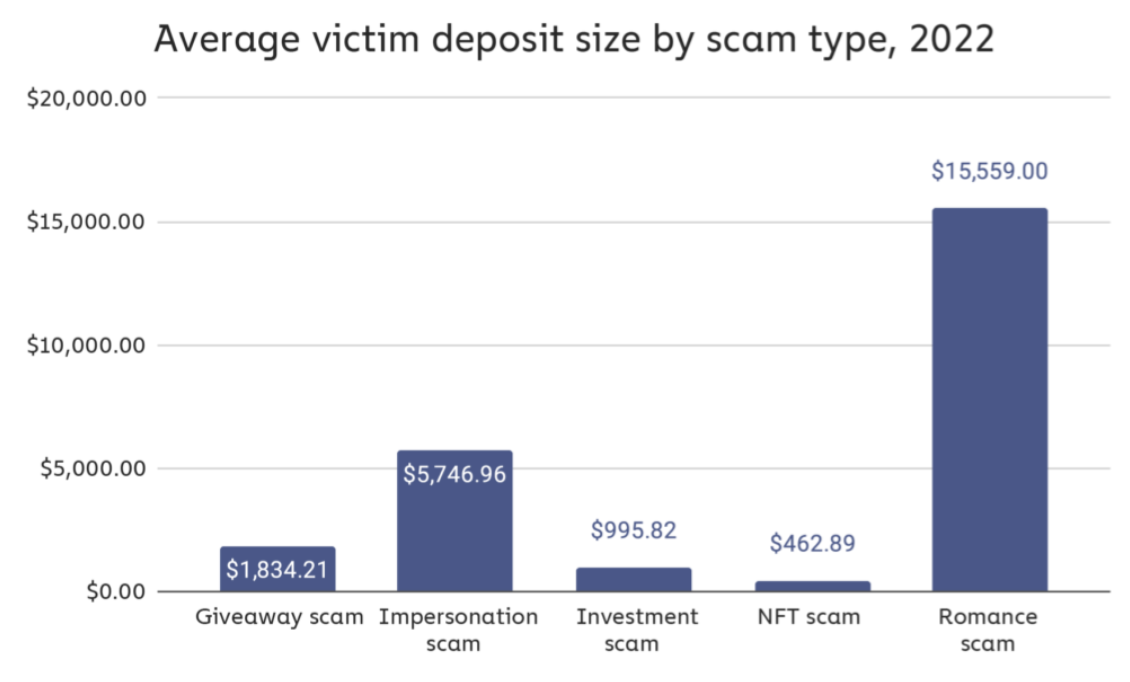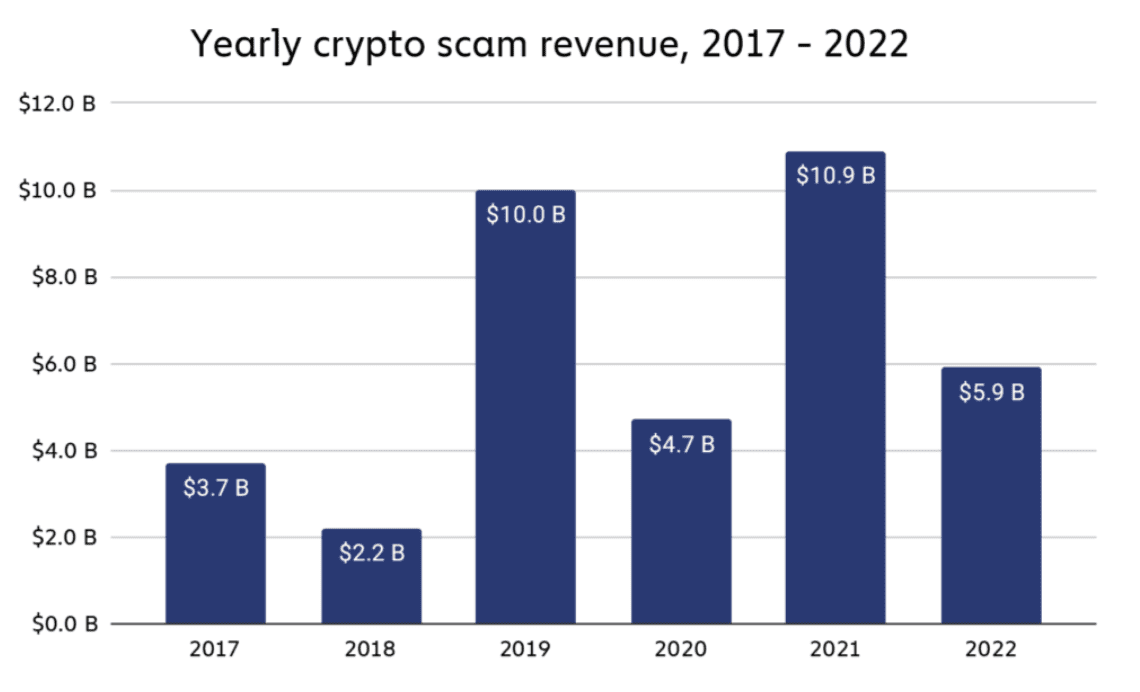Crypto scam revenue was slashed by almost half in 2022 due mainly to falling crypto asset prices, but two scam types managed to stay immune.
Crypto scam revenue in 2022, which includes investment scams, NFT scams and romance scams, among others, amounted to $5.9 billion in the year — down 46% from 2021.
The data came from a Feb. 16 crime report from Chainalysis, which attributed most of the decline in scam revenue to poor market conditions — as lower crypto prices generally result in lower scam performance.
Chainalysis however pointed to two different scam types that managed to stay relatively immune to the price falls — romance scams and giveaway scams.
“Scam revenue throughout the year tracks almost perfectly with Bitcoin’s price, consistently maintaining a three-week lag between price moves and changes in revenue. However, not every distinct type of scam follows this pattern — some types of scams see revenue changes increase as crypto asset prices decrease,” explained the firm, adding:
“For instance, unlike other kinds of scams, romance and giveaway scams don’t show a positive correlation with Bitcoin’s price.”
Romance scams, while having lower overall revenue as a category, racked up the highest average victim deposit size in the year — with the average victim losing just under $16,000, nearly 3x more than the next biggest scam type.

Romance scams typically involve building a relationship with the victim, with the scammer convincing them that they need their help.
Chainalysis said that these scam types are most likely to persist when crypto prices are down because it’s playing to a victim’s compassion rather than greed.
“That kind of emotional pitch is probably equally effective regardless of trends in the wider market, because the victim’s primary goal isn’t to get rich quick, but rather to help someone they believe to be a potential romantic partner,” the firm wro
Related: Scammers are targeting crypto users with new ‘zero value TransferFrom’ trick
Romance scams, and particularly “pig butchering scams” have been seen as a growing area of concern within crypto.
For example, a United Kingdom investigation published on Jan. 29 found that half of all crypto companies involved with scams in the state were linked to pig-butchering scams.
Click Here to Read the Full Original Article at Cointelegraph.com News…
